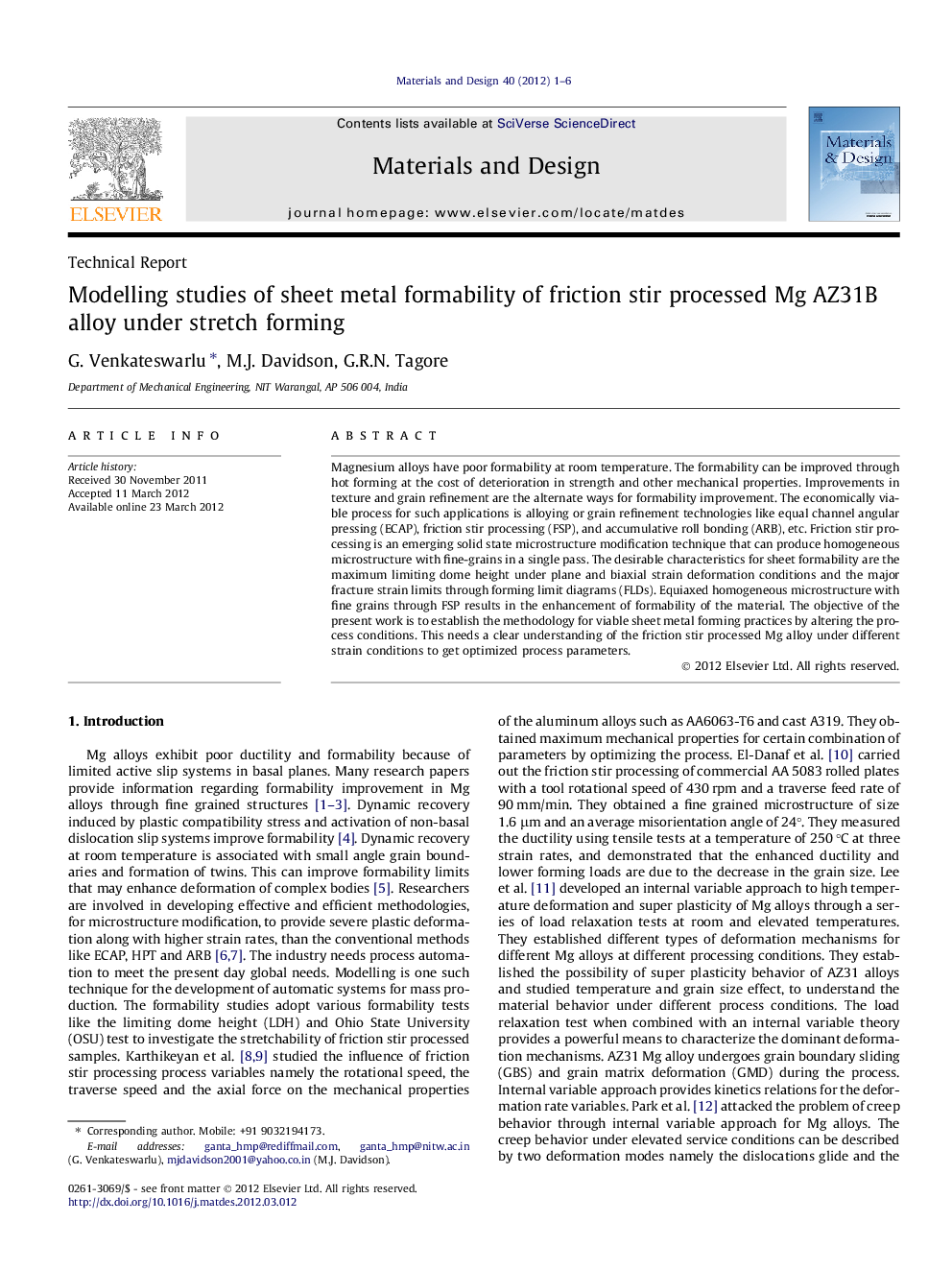| Article ID | Journal | Published Year | Pages | File Type |
|---|---|---|---|---|
| 830568 | Materials & Design (1980-2015) | 2012 | 6 Pages |
Magnesium alloys have poor formability at room temperature. The formability can be improved through hot forming at the cost of deterioration in strength and other mechanical properties. Improvements in texture and grain refinement are the alternate ways for formability improvement. The economically viable process for such applications is alloying or grain refinement technologies like equal channel angular pressing (ECAP), friction stir processing (FSP), and accumulative roll bonding (ARB), etc. Friction stir processing is an emerging solid state microstructure modification technique that can produce homogeneous microstructure with fine-grains in a single pass. The desirable characteristics for sheet formability are the maximum limiting dome height under plane and biaxial strain deformation conditions and the major fracture strain limits through forming limit diagrams (FLDs). Equiaxed homogeneous microstructure with fine grains through FSP results in the enhancement of formability of the material. The objective of the present work is to establish the methodology for viable sheet metal forming practices by altering the process conditions. This needs a clear understanding of the friction stir processed Mg alloy under different strain conditions to get optimized process parameters.
► The forming behavior of the FSPed Mg material has been correlated with the fundamental material parameters. ► We have found that an inverse relationship exists between the yield strength and the LDH. ► A statistical model based on the test data of uniaxial tensile test has been developed to establish the formability index.
